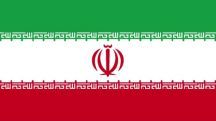 Everything you need to know about today’s coverage of Israel and the Mideast. Join the Israel Daily News Stream on Facebook.
Everything you need to know about today’s coverage of Israel and the Mideast. Join the Israel Daily News Stream on Facebook.
Today’s Top Stories:
1. Ronen Bergman (YNet) and Lenny Ben David (Times of Israel) weigh in on talk of Israel assassinating Yasser Arafat. As for news coverage, I liked how AP‘s Josef Federman handled the story. But the The Independent‘s Donald Macintyre reduces Arafat’s terror record to a he said/she said spat, with choice qualifiers:
Arafat was frequently denounced as a terrorist leader by some of his Israeli adversaries, including Ariel Sharon, who was Israel’s Prime Minister at the time of Arafat’s death. Yet, with the assassinated Israeli Prime Minister Yitzhak Rabin, the Palestinian leader was the co-architect of the Oslo peace accords in the early to mid-Nineties.
But he was also blamed by Israel for leading the second Palestinian intifada, or uprising, which began in September 2000 after the collapse of peace talks between Arafat and the then Israeli Prime Minister Ehud Barak. Tensions were further inflamed when Mr Sharon, then still in opposition, toured the Temple Mount in Jerusalem’s Old City, surrounded by armed guards; the religious site is sacred to both Jews and Muslims.
Meanwhile, a Reuters photo essay whitewashes Yasser Arafat’s “life and legacy.”
 2. A state-run news service removed an online poll whose results didn’t match Tehran’s nuclear party line. More than 60 percent of the respondents said Iran should drop its uranium enrichment to bring sanctions to an end. The LA Times writes:
2. A state-run news service removed an online poll whose results didn’t match Tehran’s nuclear party line. More than 60 percent of the respondents said Iran should drop its uranium enrichment to bring sanctions to an end. The LA Times writes:
Because only 2,000 people responded, the website declared, the results did “not represent the whole population of Iran.” . . .
And in another twist, the Associated Press reported Wednesday that Iranian state TV charged that the British Broadcasting Corp.’s Persian-language service had hacked into its website to change the results of the poll to make it appear that respondents favored dumping nuclear enrichment if that would lead to a reduction in sanctions. The BBC said in a statement that the claims were “both ludicrous and completely false, and the BBC Persian Service stands by its reporting,” the Associated Press reported.
More on the poll at Radio Free Europe.
3. The Ramallah demonstrations of the last few days are anti-Oslo and driven by a younger generation of Palestinians. After reading Linda Gradstein’s report in The Media Line, it’s worth asking: Has the Arab Spring finally reached the West Bank?
The protests were sparked by a planned meeting between Palestinian Authority President Mahmoud Abbas and Israel’s Vice Premier Shaul Mofaz, who was Israel’s army chief-of-staff during the second intifada, or uprising, and some Palestinians accuse him of being a war criminal. But of concern is the fact that the second and third demonstrations took place even after the complained-of meeting had been cancelled.
Israel and the Palestinians
• Forget about the Tel Aviv bubble. Reuters discovers the Ramallah bubble of flashy cars and trendy cafes:
Government spending and living on credit at all levels of Palestinian society is rampant and, as the euro zone crisis has shown, may prove to be the economy’s undoing.
Meanwhile, the BBC picks up on an Oxfam report (pdf) which blames (who else?) Israeli settlements for jeopardising Palestinian communities in the Jordan Valley.

